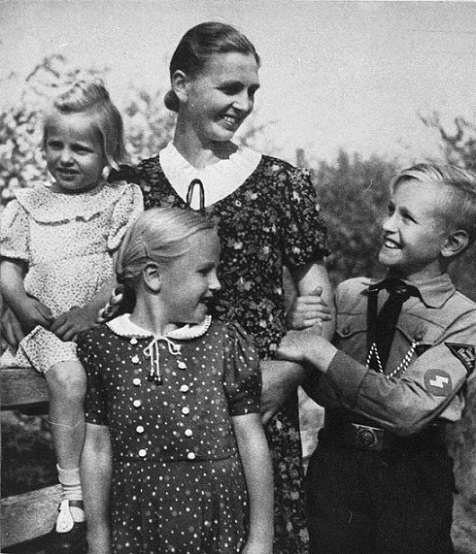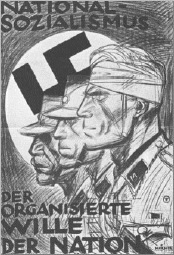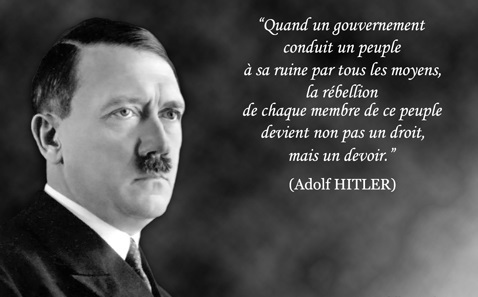
Volksführer Léon Degrelle
How Hitler consolidated power in Germany and launched a social revolution
 Who Would End the Bankruptcy ?
Who Would End the Bankruptcy ?
"We have the power. Now our gigantic work begins."
Those were Hitler's words on the night of January 30, 1933, as cheering crowds surged past him, for five long hours, beneath the windows of the Chancellery in Berlin.
His political struggle had lasted 14 years. He himself was 43, that is, physically and intellectually at the peak of his powers. He had won over millions of Germans and organized them into Germany's largest and most dynamic political party, a party girded by a human rampart of hundreds of thousands of storm troopers, three fourths of them members of the working class. He had been extremely shrewd. All but toying with his adversaries, Hitler had, one after another, vanquished them all.
Standing there at the window, his arm raised to the delirious throng, he must have known a feeling of triumph. But he seemed almost torpid, absorbed, as if lost in another world.
It was a world far removed from the delirium in the street, a world of 65 million citizens who loved him or hated him, but all of whom, from that night on, had become his responsibility. And as he knew -- as almost all Germans knew at the end of January 1933 - this was a crushing, an almost desperate responsibility.
Half a century later, few people understand the crisis Germany faced at that time. Today, it's easy to assume that Germans have always been well-fed and even plump. But the Germans Hitler inherited were virtual skeletons.
During the preceding years, a score of "democratic" governments had come and gone, often in utter confusion. Instead of alleviating the people's misery, they had increased it,
due to their own instability: it was impossible for them to pursue any given plan for more than a year or two. Germany had arrived at a dead end. In just a few years there had been 224,000 suicides -- a horrifying figure, bespeaking a state of misery even more horrifying.
By the beginning of 1933, the misery of the German people was virtually universal. At least six million unemployed and hungry workers roamed aimlessly through the streets, receiving a pitiful unemployment benefit of less than 42 marks per month. Many of those out of work had families to feed, so that altogether some 20 million Germans, a third of the country's population, were reduced to trying to survive on about 40 pfennigs per person per day.
Unemployment benefits, moreover, were limited to a period of six months. After that came only the meager misery allowance dispensed by the welfare offices.
...
Degrelle's ebooks
Hitler's ebooks
For more informations
The rest of us we have dreamed of something marvellous




